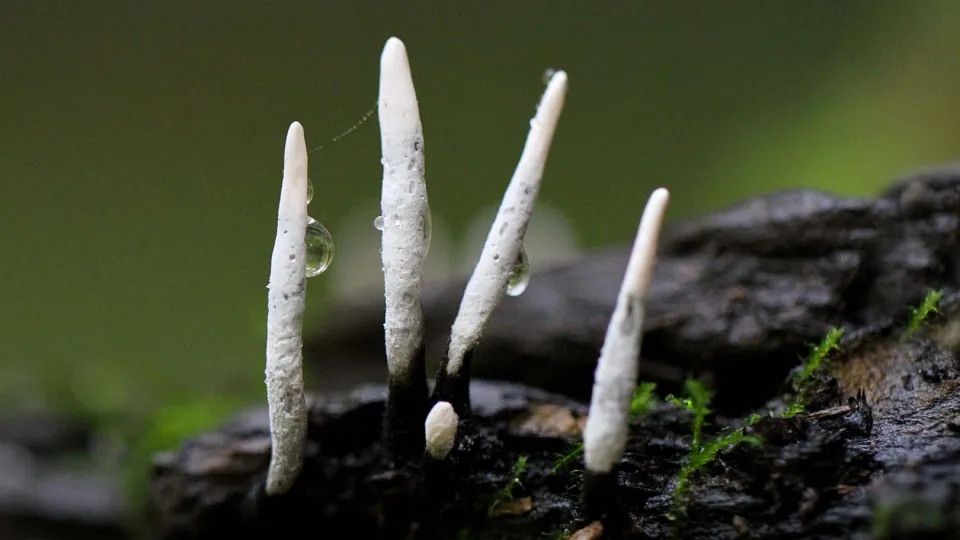
Candlesnuff fungus
The candlesnuff fungus is very common. It has an erect, stick-like or forked fruiting body with a black base and white, powdery tip. It grows on dead and rotting wood.

The candlesnuff fungus is very common. It has an erect, stick-like or forked fruiting body with a black base and white, powdery tip. It grows on dead and rotting wood.
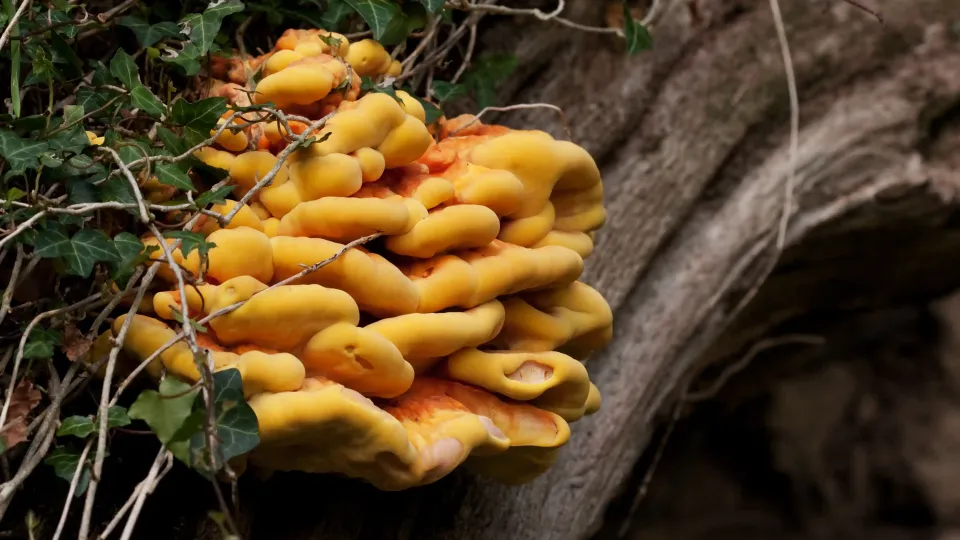
Chicken of the woods is a sulphur-yellow bracket fungus of trees in woods, parks and gardens. It can often be found in tiered clusters on oak, but also likes beech, chestnut, cherry and even yew.

The velvet shank can be found clustered on the dead and dying wood of deciduous trees, such as elm, ash, beech or oak. It has a bright orange cap and can be seen throughout winter.

The branching, finger-like projections of this fungus give it the appearance of an underwater coral. Its striking colour and form make it easy to spot, but it is scarce in the UK.
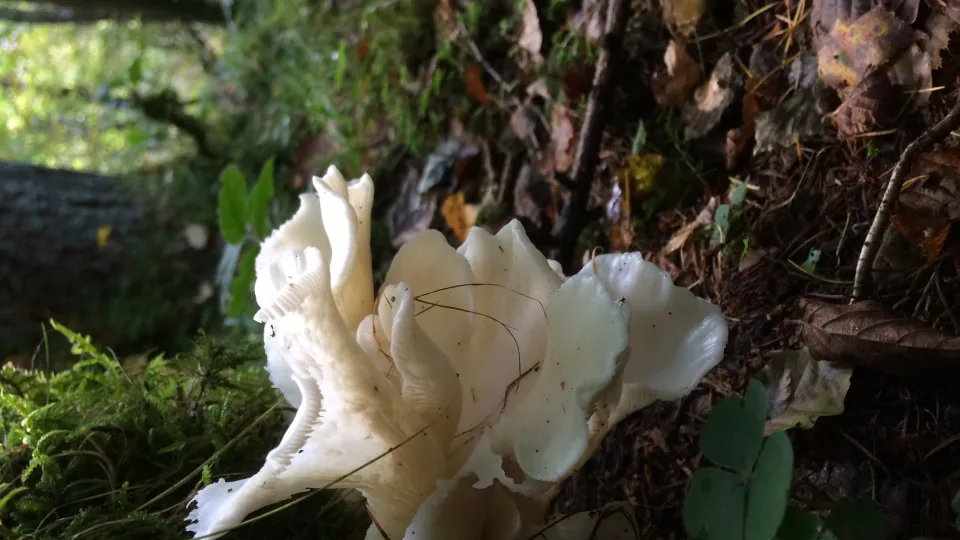
The angel's wings fungus grows in overlapping clusters in the coniferous woods of Scotland and north England. Its funnel-like, white caps have no stems.
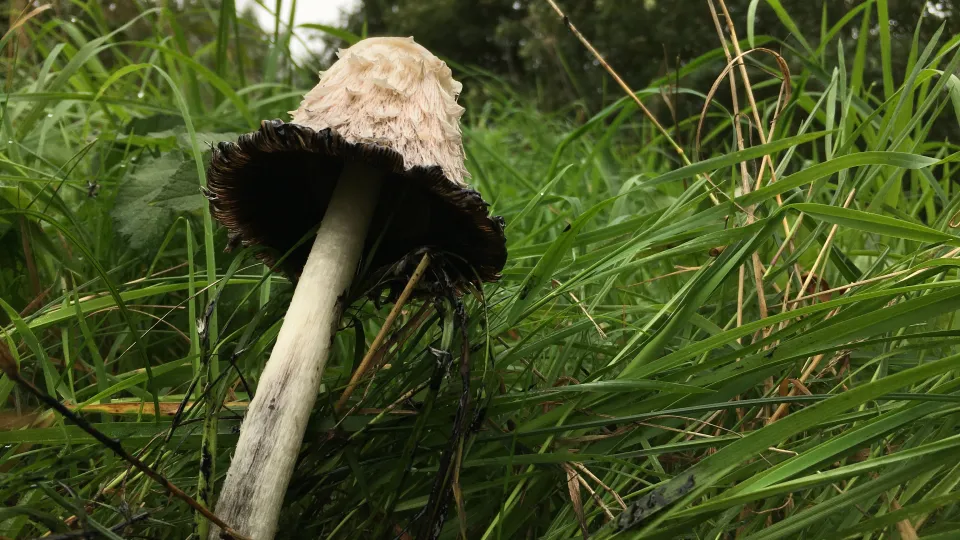
As its name suggests, the shaggy inkcap, or 'lawyer's wig', has a woolly, scaly surface to its bell-shaped toadstools. It is very common and can be seen at the road side, in parklands and even popping up in lawns.
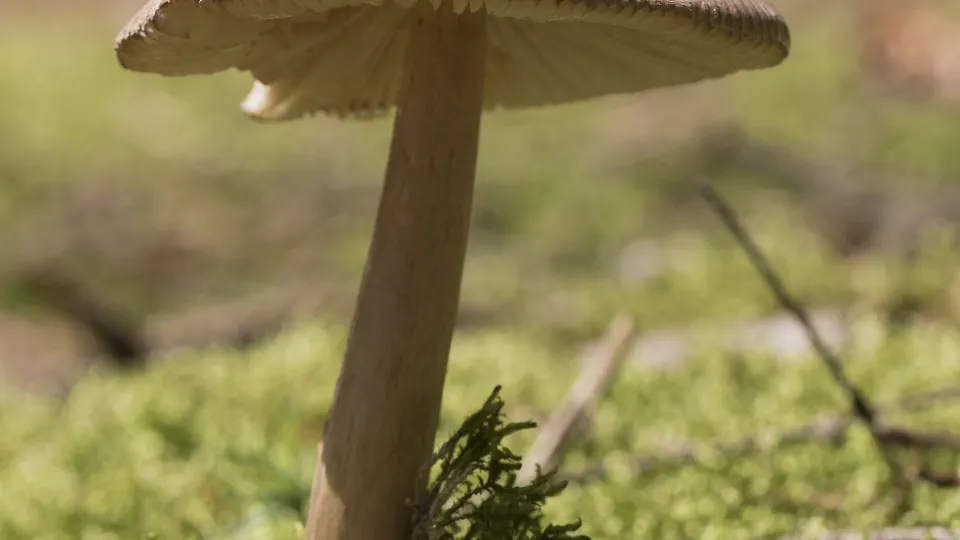
The tawny grisette has an orange-brown cap and a tall, slender stem that arises from a conspicuous cup-like sack. It can be found in woodlands, particularly those with Birch, but also on heaths.
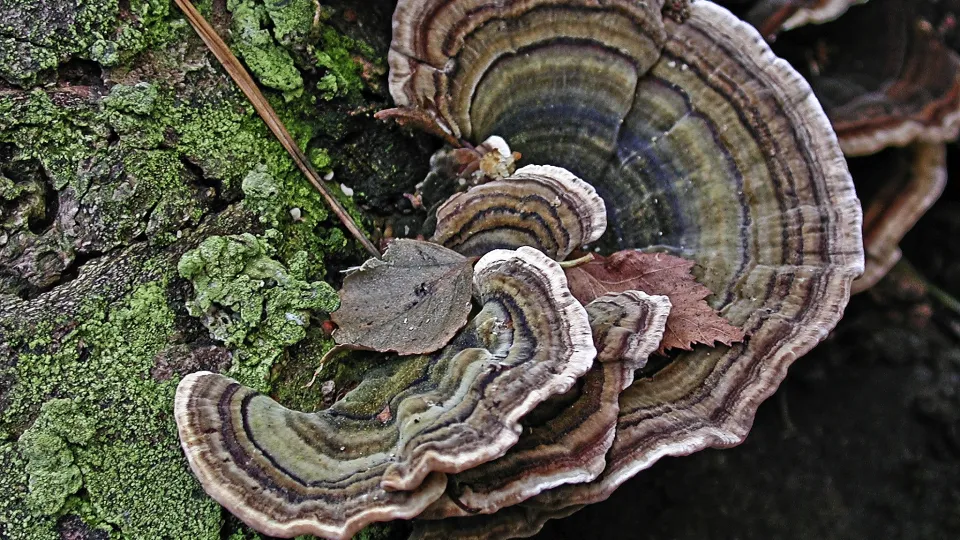
The turkeytail is a very colourful bracket fungus that grows throughout the year, but is at its best in the autumn. Its circular caps can be seen growing in tiers on trees and dead wood.
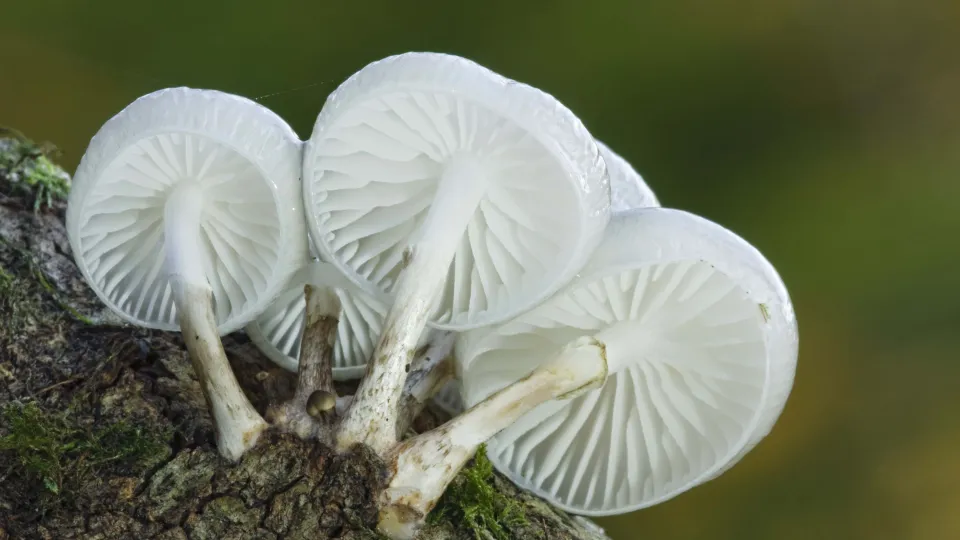
The shiny, translucent porcelain fungus certainly lives up to its name in appearance. It can be seen growing on beech trees and dead wood in summer and autumn.
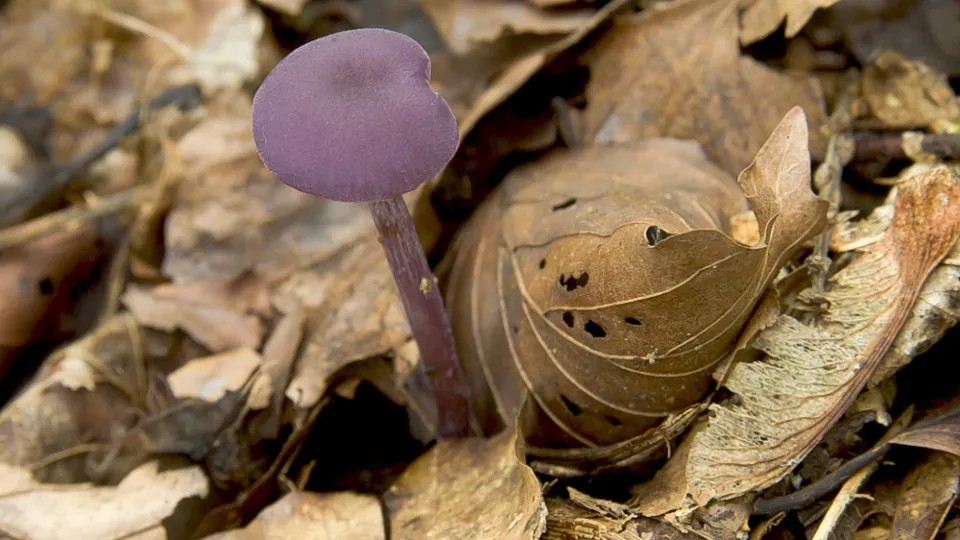
The pretty-in-purple amethyst deceiver can be seen growing in the leaf litter of our woodlands during late summer and autumn. Although edible, it looks similar to the poisonous Lilac fibrecap.